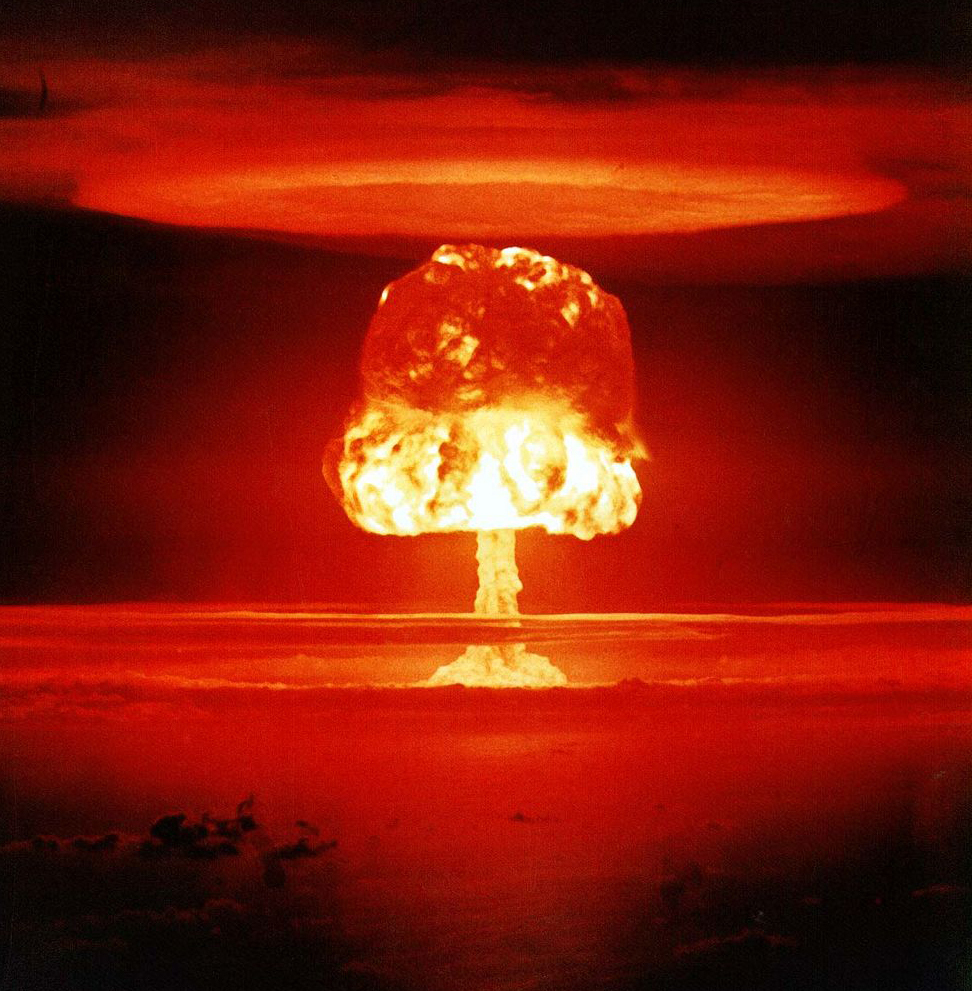- cross-posted to:
- nuclear@feddit.nl
- cross-posted to:
- nuclear@feddit.nl
Summary
France’s Flamanville 3 nuclear reactor, its most powerful at 1,600 MW, was connected to the grid on December 21 after 17 years of construction plagued by delays and budget overruns.
The European Pressurized Reactor (EPR), designed to boost nuclear energy post-Chernobyl, is 12 years behind schedule and cost €13.2 billion, quadruple initial estimates.
President Macron hailed the launch as a key step for low-carbon energy and energy security.
Nuclear power, which supplies 60% of France’s electricity, is central to Macron’s plan for a “nuclear renaissance.”
Good. Germany made a huge mistake for themselves and for all of Europe in shutting down their nuclear plants.
Except they were basically beyond design life.
And every new plant comes decades late and 4x the original budget.
But they planned on replacing it with natural gas. Not to mention that it was supposed to be Russian gas. Sweden pays for the shitty decisions in Berlin.
Fortunately these aren’t the only options.
They have cheap Russian gas so who nee…
Lets hope this one stays in better condition than their other nuclear plants lol
1.6 GW, cool, but everyone knows all you need is 1.21 GW
Those were JW
Jigga what?



At least this one is on the coast so it can still run when the rivers dry up.
But holy shitsnacks 3½ times slower than planned and 4 times more expensive. No wonder no new nuclear power plants have been built in a generation when the ones coming online now were all delayed by a generation.
4 times budget sounds more than it is. You have to underbid to actually get contracts for construction and then it also depends on what was actually missing in the specification.
Big projects are never on budget because the budget is just an arbitrary number of lowballing the best case estimate
Also any project that takes longer than the initial estimate will be overbudget, not only because you are paying local workers for longer (fairly good for the economy) but simply because inflation has happened more since the project started.
Yeah, also financing cost for equipment and material sitting around which usually comes as a cost to the contractor.
… but we make decisions about economic viability on that basis??
My state has been building a new interstate highway in segments for the last 1.5 decades and for the segment nearest me the main construction contract was awarded to a major french company. The french company thought the project was an upfront full payout, but the state had it set up as a piecemeal payment system based on hitting specific objectives. Upon finding this out the company halted all work and abandoned the job until the state took over the project 18 months later.
This reminds me of that.
The french company thought the project was an upfront full payout, but the state had it set up as a piecemeal payment system based on hitting specific objectives.
I pretty much just don’t believe you.
“How & when will we get paid” is a core component of tenders even for contracts worth a few thousand dollars. I’m incredulous that a contract worth many millions could be awarded without anyone realising that payments were provided in stages.
What you’re describing sounds much more like a disagreement over a variation. Whatever aspect of the project was going to cost more than anticipated so the contract needs to be varied. Service acquirer refuses to vary, contractor refuses to absorb the cost.
You might be right. It’s a memory from 5-6 years ago and when I did some further digging in response to your comment, I couldn’t find any news stories that explained the exact reason why the company halted work but I did get a major detail wrong in finding that it was a Spanish company and that they were already on the brink of insolvency.
Some anti nuclear groups do everything they can to slow down nuclear builds, putting as many road blocks in the way as possible. Then when it’s slow they say: see, building nuclear plants is slow!
Did the anti nuclear people inflate the cost fourfold, too?
Yes, impeding something is ultimately an increase in cost. That’s how it works.
The only miscalculation of the cost by -four times- was due to protest of anti nuclear protestors, according to you?
Source pls?
Source for what you said?..
I was reacting to what /u/DaviddoesLemmy and /u/ryedaft were saying.
You need to take the two parent posts in consideration for my argument.
Are you suggesting that delays don’t impact the cost? Or that the impact of those delays doesn’t account for the 4x budget overrun?
I think it’s only one factor in the budget overrun, but still worth mentioning.
If you are paid $1 an hour and it takes 6 hours that is $6
If you work 12 hours that is $12
12>6
The problem with nuclear is that as a bombing target it has a greater impact than a solar farm. Having said that it was once a goal for every Canadian to have a reactor in their basement
Politics are part of the system though. But if strategic supply of oil, gas, coal from undemocratic regimes was simply off the table, constitutionally forbidden and all that, I think nuclear energy would suddenly become more competitive. Because the financing of such groups would suffer.
As others have mentioned, it isn’t for a practical reason. Nuclear is not that difficult to build. Look at China. Certain groups (funded by dirty energy companies) have pushed an idea that nuclear isn’t safe and had more and more bureaucracy and regulations pushed onto it. Sure, some is needed, as it’s also needed for other sources. Nuclear has been strategically handicapped though because they know it’d destroy their business if it’s able to compete on a level playing field.
The most unimaginably, but historically stupid thing was “green” activists protesting against nuclear power and for coal and gas.
And yes, nuclear power is very efficient. What makes it most efficient is the ability to very quickly regulate output, the improved logistics, and smaller reliance on beheading, culture-erasing, genocidal, revisionist savages getting everywhere.
Turning a reactor on and off is not as easy. They’re designed as baseload power that is meant to run continuously. SMR are the ones that are quick and responsive but those are always a couple of years away.
The ones in service right now are mostly/all designed that way, but that’s a design decision rather than an inherent limitation. They cost basically the same to run whether they’re at maximum output or minimum, so they’re most cost-effective as base load and if you need responsive output, you can probably build something else for less money. If you ignore that and build one anyway, you only need fast motors on the control rods and the output can be changed as quickly as throttling gas turbines, but there’s no need for that if you know you’re just building for base load.
changed as quickly as throttling gas turbines
Nuclear power plants aim to finely balance the reaction between delayed criticality - a very slow exponential increase in the level of radioactivity, and marginal sub-criticality - i.e. a very slow exponential decrease in the level of radioactivity.
To get faster exponential growth in power output than delayed criticality is physically possible - past delayed criticality is prompt criticality. However, fast exponential growth of radioactive output on time scales so short that machines cannot react is not something you ever want to happen in a civilian nuclear application; only nuclear weapons deliberately go into the prompt critical region, and an explicit aim of nuclear power plant design is to ensure the reaction never goes into the prompt critical region.
This means that slow exponential changes is the best the technology can do (and why plants need active cooling for a period of time even when shutting down - see Fukushima when their reactors were automatically shutting down due to the detection of an earthquake, but their cooling power infrastructure got flooded while they were decreasing their output).
I think the most promising future development will be more renewable capacity coupled with better long-distance transmission and batteries (ideally sodium when the tech is ready).
You’re not throttling between 0% output and 100% output, as that takes weeks or months, and instead throttling within a limited range at the upper end of the output power. Because a nuclear reactor puts out so much power compared to a combined cycle gas turbine, going down to 80% power has a comparable impact to totally shutting down a gas turbine. It doesn’t need to be instant to be used for dynamic load - throttling a gas turbine isn’t as it takes time for the heat exchanger to warm up or cool down after increasing or decreasing the fuel flow, and time for the first turbine to speed up or slow down after the flow of the Brayton-cycle coolant changes, and then more time for the second heat exchanger to heat up/cool down and more time for the Rankin-cycle turbine to speed up or slow down as the flow of steam changes, and only then is the new desired output power achieved.
Wikipedia puts the average emission time for delayed neutrons at fifteen seconds, which while ludicrously slow compared to a bomb, is really fast compared to the day-night cycle that represents most dynamic load variance in a country with plenty of renewables or heavy industry that doesn’t operate at night time, so there’s plenty of time for the power output to respond as long as you’re restricting the range that it’s operating in.
That said, now that solar and wind are cheaper, conservative politicians are finally pushing for nuclear, because 17 more years of building at 4 times the budget means more fossil fuels in the meantime compared with spending those government funds on solar and wind.
No wonder no new nuclear power plants have been built in a generation when the ones coming online now were all delayed by a generation.
I encourage you to take a look at any infrastructure project.
Going over budget and past deadlines is normal.
In my mother’s hometown, they finally decided which architect would redesign the townhall after it’s roof burnt down. Five years ago. And this is a rich town. France is fucking useless at getting shit done fast. It’s depressing really. This plant finally getting built is a fucking miracle!
The hope of these new small modular reactors is they can cut the time down.
Less land, mass manufactured in a factory and shipped to location.
That should help with estimated costs being closer to real costs.
Even if they’re still expensive, being able to better plan and predict things is huge.
Except that’s all been tried and promised before. The concept of SMRs is nothing new. It’s been tried again and again, every few years since the 1970s. It’s never panned out, and the promised savings from mass production of small reactors never materializes.
It might have been promised for awhile, but we’re finally at the point of certain plans getting government approvals. It takes time. We might start seeing some finally start to get built in the 2030’s
Edit: This ones says 2029 operational, but see, it wasn’t even certified until 2023, and this is the first SMR certified in the USA. Its taken forever to get SMRs certified.
https://www.energy.gov/ne/articles/nrc-certifies-first-us-small-modular-reactor-design
It doesn’t help when all the senior employees from last time you built a reactor have retired and anyone who hasn’t retired was pretty junior the last time around. For projects where you have to get everything right the first time, so can’t just try things to see what works, it’s devastating to stop doing them if you ever might need to start again.
Yeah, that’s the whole joke.
The full price is still less than 1/4 of Doge Coin’s market cap.
Nuclear plant construction delayed? Budget overrun? Even in one of the most nuclear developed countries in the world? Wooooow, what a surprise!!
Fossil fuel exec calls up his criminal friends in whatever legislative bodies he can reach “hey yeah I need this delayed and I need it to cost more in order to make my own business plans look less stupid and toxic. I don’t fucking care how you do it, rubber stamp some no bid contracts for your cousin in law’s consulting firm or something. Of course your family can expect some very lucrative careers, incidentally…”
deleted by creator
its most powerful at 1,600 MW,
Fuck, that’s 100 more MW than VVER-1500(project). Or 400 more than VVER-1200(working).
post-Chernobyl
???
is 12 years behind schedule
VVER-1500 is still project for 40 years. Most modern we have now is VVER-TOI (1300 MW).
Olkiluoto unit 3 took 18 years: https://en.wikipedia.org/wiki/Olkiluoto_Nuclear_Power_Plant?wprov=sfti1
It’s the same French EPR tech and the whole project was plagued with mistakes because the French wanted to cut corners and just get it built as fast as possible.
Sounds like pretty much every software project I’ve ever worked on
The difference here was that STUK (the Finnish Radiation and Nuclear safety org) isn’t a backwater shop like the French kinda assumed. It’s a world-class setup that consults around the world.
They caught so many mistakes that the project went ridiculously over time and budget. The French crew had kids born and go to school in Finland before it was over - it was supposed to be a few years of expat experience 😆
Yeah. I love the French, our dear EU brothers and sisters, but just don’t buy a nuclear power plant from them.
They have a lot of them and they work perfectly well, who are you buying it from? The USA? Germany?
Microsoft is restarting 3 Mile Island…
Hinkley point in the UK. Massive overruns,built by the French
Thing is there’s only four manufacturers of reactors in Europe:
- French/Japanese Framatome
- Italian/Chinese Ansaldo Energia
- Czech/Korean Doosan Skoda
- German/Russian Nukem
The 44% Chinese part of Ansaldo and the 100% Russian ownership of Nukem is probably not doing either company any favors. That leaves you with Doosan Skoda and Framatome. Considering a nuclear reactor project isn’t build in less than a decade, and given the choice between a company that has built several modern reactors and a company that is first in line for a visit from dear old uncle Vlad and haven’t commissioned a reactor in 22 years, I’d say that the French is the best bet.
So that the French built the reactor is only logical. That it got delayed to the extreme, that’s just what happens when you don’t buy a reactor of the rack.
All nuclear plants get over budget or the political party doesn’t seem to make the budget accepted.
So why throw cash at them?
fuck yeah
Seems like a waste investing so much in the U-235 cycle. Aren’t the thorium and U-238 cycles better? Like, more compact footprint, simpler design, more scalable, doesn’t need to be located near a large body of water etc.
France doesn’t care about fuel cycles which don’t produce plutonium.
The U-235 fuel cycle produces way more plutionium than the U-238 cycle, though.
EDIT: Aw, fuck, I typed it wrong. U-238 produces more plutonium than U-235. My criticism still stands.
That’s what they said
I know just about noting about nuclear fuel cycles, but yes, more plutonium sounds exactly like what the French want. They have an arsenal to feed.
The military nuclear is the main reason behind our civilian nuclear infrastructure, which was planned during the cold war. It looks like once per century the military can have an unintended positive effect, yay.
With the side effect of almost destroying the world multiple times.
Don’t get me wrong, I’m in no way advocating for military nuclear (or even for anything military).
France stopped production of military fuel 30 years ago.
The current goal is about recycling the existing nuclear waste, to reduce the need for long term storage and natural uranium.
Thorium is still umproven, and was even more so in 2007. Until (or if?) the Chinese TMSR LF1 really takes off no private company will risk trying a thorium reactor
Extracting its latent energy value in a cost-effective manner remains a challenge, and will require considerable R&D investment.
The physics are sound. It’s the economics that are apparently still a problem.
Good news!
They aren’t burning coal like Germany? That’s how you go “clean”…
By pouring endless amounts of money down the drain? Great strategy.
It is if your intention is to not introduce carbon into the atmosphere over the 60 year life’s lifespan to 90 year lifespan of the power plant
Then, the priority should still be renewables, because they are far cheaper, can be build faster and if they malfunction, no one is in danger. France has enough Nuclear to deal with no-sun and no-wind phases (if they work fine, which is the other problem with nuclear energy in France)…
We don’t have enough resources yet for all the renewables we’ll need. Like there simply isn’t enough copper being mined fast enough.
Nuclear needs to be part of the solution.
Prices of renewables are dropping for years. If building them becomes difficult because of missing materials, the prices would rise, which is not happening at the moment. Why not just building renewables as long as it’s the far cheaper solution?
If building them becomes difficult because of missing materials, the prices would rise, which is not happening at the moment.
Solar panels have indeed become cheaper and cheaper, and you are right to argue that the materials used to build solar panels are priced in. However, solar requires some infrastructure besides the panels themselves, such as inverters and storage, and that infrastructure needs additional materials, some of which are expensive. Copper, for instance, surged in price in 2020, and there is not enough investment to expand mining operations despite the great profits it has been yielding. This is an ongoing saga in the mining industry, with BHP attempting to take over Anglo American in part for its copper portfolio.
I am not arguing against solar; I just think it cannot be scaled to the extent necessary to cover most of our current and projected future electricity consumption. To get rid of fossil fuels and generate ever more electricity for EVs, the AI black hole and goddamn cryptocurrencies, I think we will need nuclear. I wish we would build more public transportation, break from the AI spell and ban cryptocurrencies, but I’m not hopeful. In any case, the pace solar has picked up these past years is very encouraging and we should do what we can to push it further.
I’m not suggesting we stop building renewables. 🙄
Great! At the current rate it’ll only take them 200 more years to replace all their old time bombs.
Looks like there was an end to it.
Going over budget and missing deadlines is normal for large infrastructure projects.
If anything, seeing people’s shock at this should reveal how little they know about development.
And yet their electricity is still cheaper than Germany’s …
Don’t you understand line must go up, quarterly profits now consequences never .what the fuck is a long-term investment. Get that ideology out of my power plant this instant. /S
They better retool their power plants to use something other than uranium. Last I read, we had about a century’s worth at the current rate of mining.
There is around a century’s with of uranium with current mines.
But right now uranium is very cheap so most of it is “wasted”. There is plenty of way of recycling used nuclear fuel or improving the productivity of uranium enrichment.
If uranium supply starts to actually be a problem there is a way to “create” more nuclear fuel: breeder reactor.
With breeder reactor France could fuel their reactor for millennia only with the depleted uranium they have in stock (when enriching uranium you end up with a tiny account of enriched uranium on one side and depleted uranium on the other, France is keeping the depleted uranium in stock specifically for this scenario)
Yeah or put another way: All that nuclear waste we occasionally talk about burying under a mountain has something like more than 90% of its energy left.
No.
They speak about it in the article I linked (in French unfortunately). The waste that we talk about burying is what’s left AFTER extracting all the components that could be reused.
I have always wondered how it’s stored… always imagined like 55 Gal drums in some Simpsonsesque way, but that doesn’t really make sense… but maybe it does?
Like that but way bigger. The fuel is still in solid form and stored in giant heavy dry casks that essentially armor that fuel from the outside world.
Also encased in glass, and both the cask and the glass can stop the radiations on their own iirc.
Is that including all known deposits? Or just the amount in current mines?
It’s based on what can actually be used.
The world’s present measured resources of uranium (6.1 Mt) in the cost category less than three times present spot prices and used only in conventional reactors, are enough to last for about 90 years.
https://world-nuclear.org/information-library/nuclear-fuel-cycle/uranium-resources/supply-of-uranium
(Note this is a *pro-*nuclear power organization.)
New technology may change that. We were once told that the oil in the Canadian tar sands was not economical enough to extract and now they’re extracting it. The paper also discusses the possibility of thorium as a fuel source, although it has yet to see commercial viability.
As-is, and with current reactors, we don’t have much we can use. Relying on new technology to change that could be a poor gamble.
When I was at school in the early 90s I was told oil would run out in 30 years, yet here we are, 30 years later and not only did it not run out, but people aren’t even talking about it running out.
100 years is a long time, and I suspect that nuclear will seem very old fashioned by then, and today’s power stations will have been long since decommissioned. If we’re not getting close to 100% of our power from wind and solar and tidal by then, we’ll be shafted anyway.
When I was at school in the early 90s I was told oil would run out in 30 years
No you weren’t. If you were, then you had a terrible teacher.
What you’re probably thinking about “peak oil.” https://en.m.wikipedia.org/wiki/Peak_oil
Nah man. I also heard this back when I was a kid in the 90s. It came from our news channels, not teachers in school.
I literally covered this in my post.
Don’t worry, the consultants are already on the task and invoicing hundreds of millions for their hard work.
No ETA but will keep you posted… in about 12 years.
Therein lies the problem.
You probably read about U-235, but yes. There are soviet BNs, their chinese clone, french experimental reactor and I think topic reactor, which can work on plutonium, which is side-product in regular reactors.
[Star Wars meme]
Princess(?): 12 years of extra safety and sustainability, right?
Young Darth(?):
Princess: Right?
Darth:
Aaaaand, the objective it to add 1000 new reactors in the next 25 years… we ded
Just start building a thousand today, and it’s done in 17 years
Renewables are far cheaper and can be built faster and if they malfunction, no one is in danger.
France already has enough Nuclear to deal with no-sun and no-wind phases (if they work properly, which is the other problem with nuclear energy in France)…
So, there is literally no reason to waste tax payer money and time like this and to force yourself to import material from Russia. Just build renewables until we get fusion energy…
Even when disasters like Chernobyl are included, nuclear energy kills fewer people per Watt than any of the alternatives. E.g. dams burst and people like building towns downstream of hydro plants. Even with wind where it’s basically only deadly due to accidents when installing and repairing turbines (e.g. people falling off, fires breaking out too abruptly to climb down), it happens often enough that it ends up more dangerous than nuclear. Burning gas, coal and biomass all work out much deadlier than renewables and nuclear, but if your risk tolerance doesn’t permit nuclear, it doesn’t permit electricity in any form.
If the premisse is to avoid possibly every death, photovoltaic on the ground, e.g. on fields (not on houses) would probably be the least deadly solution.
Lots of people die mining the materials for photovoltaics, even with emerging technologies that reduce rare earth usage, especially because the countries with a lot of rare earth mineral wealth mostly have terrible human rights, slavery and worker safety records. In principle, this could be reduced without technological changes, e.g. by refusing to buy rare earth metals unless they’re extracted in line with best practice and that can be proven (it’s typically cheaper to fake the evidence that your workers are happy, healthy and alive than keep them happy, healthy and alive), but then things get more expensive and photovoltaics are already not the cheapest.
That’s not a bad argument.
Keeps the question open whether this is also part of https://www.statista.com/statistics/494425/death-rate-worldwide-by-energy-source/
It’s likely that my data’s out of date, and that graph does include it. If it didn’t, it’s hard to see how photovoltaics could kill enough people to have such a similar death rate to nuclear if accidents like Chornobyl are included.
It’s not either or situation, I hate this logic. Build both renewable and nuclear when the sun don’t shine. Nuclear has far more stability than renewables
It’s not necessarily an either-or situation, but when it comes to allocating public budgets, one can certainly come at the cost of the other.
This is generally what people talk about when advocating focus on renewables over nuclear.
I personally have no problem with privately funded and insured nuclear - if you’re able to swing that, then all the power in the world to you. The issue at hand is that nuclear fundamentally fails here - it’s too expensive to build and insure (not to mention the energy it produces being more expensive than its alternatives), hence public funding and insurance is essentially a prerequisite.
With PBR reactors, nobody is in danger if it breaks down, either. The pebble bed collapses, and fission stops.
Renewables are far cheaper and can be built faster and if they malfunction, no one is in danger.
No, that’s not true. Solar workers fall off roofs and wind workers get hit on the head with falling turbines at about the same rate that people get cancer from nuclear, per joule generated.
Come one… If it’s really about minimizing death, just build photovoltaik on the ground. But that’s not the priority of humanity anyways.
Sigh. We can’t meet energy demands if we only focus on the cheapest energy sources.
Like it or not, energy is priced based on how difficult it is to deliver to the recipient.
And how does this justify paying a lot more tax payer money to build the NPP instead of renewables?
France does not only focus on renewables BTW. They have NPPs that already handle the baseline. And building more of them is just not useful at all, when there is a better alternative…
Renewables aren’t a viable energy source everywhere.
How many people have died because of nuclear catastrophies?
How many people have died because of renewables?
How many people have died because of fossil fuels?
Don’t infight, we need to get rid of fossil fuel, not nuclear.
You kind of missed the point of my post. I don’t want to get rid of nuclear. I just don’t want to build new NPPs, when there is a far cheaper alternative.
BTW: How many people have died because of photovoltaic that is constructed on the ground on large fields? Probably 0… If you want to minimize death, this is the way to go.
BTW: How many people have died because of photovoltaic that is constructed on the ground on large fields? Probably 0… If you want to minimize death, this is the way to go.
https://www.statista.com/statistics/494425/death-rate-worldwide-by-energy-source/
Okay fair point, and yes we don’t need more nuclear in the west I think, but more more more renewables. That said it’s better than coal & gas & oil so if we can’t make renewables fast enough then more nuclear is better (unlikely but possible) IMO.
For the death tolls on renewables, oh my you you sweet summer child are you in for a rude awakening.
I’m still for massive augmentation of renewables ofc.
Renewables cant produce an on-demand baseload supply without the addition of significant storage capacity.
Baseload is by definition not on-demand, baseload is always there.
This is true, and at the same time not really an issue any more at the rate that energy storage systems are progressing. Similarly to how solar and wind have absolutely plummeted in price, so is the case with energy storage systems s well. As of now, the LCOE of solar + storage is at half the price of nuclear (source) and trending cheaper. Nuclear is trending more expensive. Add on a construction time of 17 years for plants and any nuclear plant is basically economically dead on arrival.
That’s what I wrote in my 2nd sentence. That does not justify building more of them, because the baseline is already handled by the existing power plants.
France won’t shut down fission for the simple reason that they need plutonium for their bombs.
No, we already have it and do not plan increasing our nuclear arsenal.

















